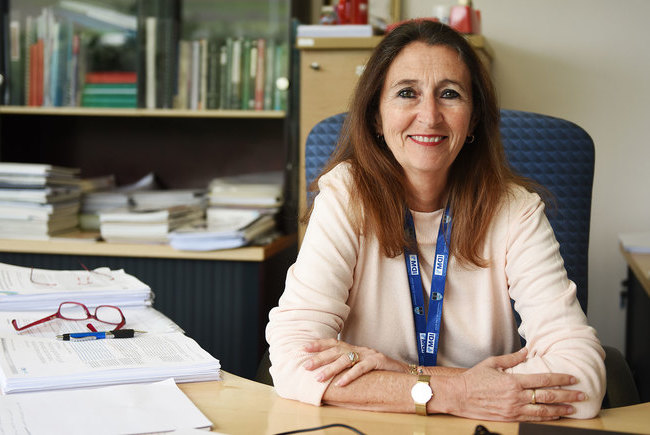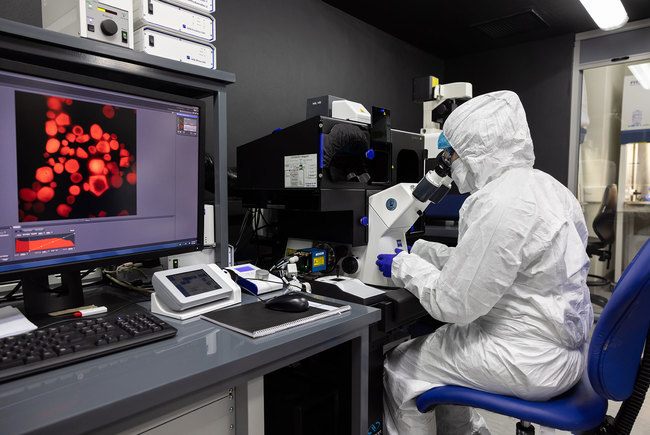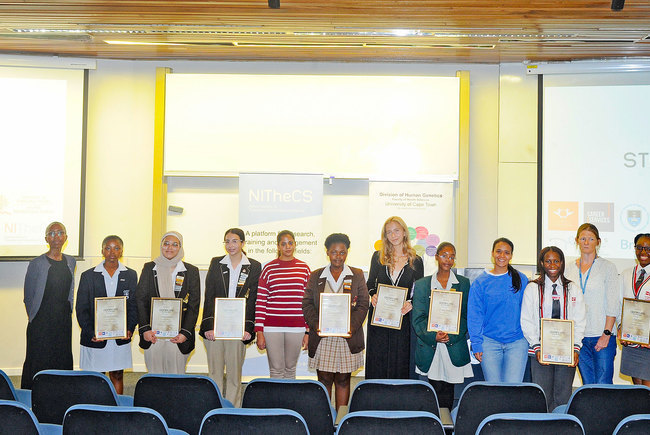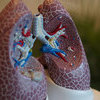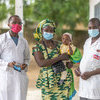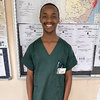Grant to boost bioimaging in Africa
15 November 2021 | Story Nadia Krige. Photo Lerato Maduna. Read time 7 min.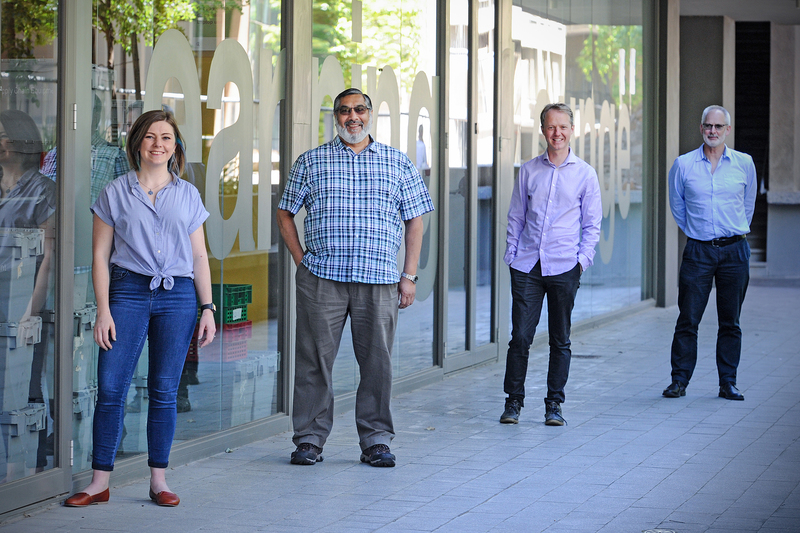
Two groups at the University of Cape Town (UCT) have been awarded grants by the Chan Zuckerberg Initiative (CZI) to expand access to and expertise in bioimaging and microscopy throughout Africa. These three-year grants will enable the Electron Microscope Unit and the African BioImaging Consortium, both based at UCT, to invest in education, training and networking opportunities to serve the scientific community throughout the continent.
In May 2021, CZI opened applications to their new funding opportunity – Expanding Global Access to Bioimaging – and invited researchers and organisations in Africa, Latin America and the Caribbean, as well as the post-Soviet states, to apply.
In the official request for applications, the CZI clearly states its goal as follows: “These three-year grants will facilitate access, foster collaboration and encourage representation of regional imaging scientists in the global community.”
Following a highly competitive application process, the Electron Microscope Unit (EMU) and the African BioImaging Consortium (ABIC), two research infrastructure groupings at UCT, were awarded grants.
“These grants will place UCT at the forefront of microscopy in Africa.”
Dr Jeremy Woodward is the principal investigator for the EMU project, which will focus on training and capacity building in the field of cryogenic electron microscopy (cryo-EM). Dr Caron Jacobs, a CZI Imaging Scientist within the Institute of Infectious Disease and Molecular Medicine (IDM) at UCT, is the principal investigator for the ABIC, which will focus on building stronger networks and fostering collaboration among African microscopists.
Training in cryo-EM for southern Africa
“Cryo-EM is a type of microscopy that offers a three-dimensional view of what protein molecules look like,” explains Woodward. “This is particularly useful in the design of vaccines or drugs that need to inhibit a particular protein in a disease-causing organism.
“It’s really useful to be able to visualise the target of the antibodies.”
Currently, the EMU is the only facility in Africa with the capacity to conduct cryo-EM experiments. The CZI funding will enable Woodward – with the support of his colleagues, Professor Robert Knutsen, EMU director, and Mohamed Jaffer, EMU principal technical officer – to make the unit and the expertise held within it accessible to a wider audience. The goal of the project is to grow a network of southern African researchers with in-depth knowledge of cryo-EM to increase the use of this technique and drive its implementation at other institutions.
One of the main aspects of the project is to offer intensive hands-on training at the EMU to a group of 15 researchers per year over three years.
“We’re hoping to attract researchers working in a variety of different fields,” says Woodward. “At the moment, most of the interested parties are in the medical field and actively conducting experiments on either emerging viruses or, of course, the big diseases for Africa – malaria, TB and HIV.”
Once these researchers have completed their training and collected their data, the expectation is that they will return to their home institutions and transfer the knowledge they have gained.
A secondary aspect of the project will be to run a series of online webinars that will be extended to as broad an audience as possible.
“We’re also going to make material available on the website, such as protocols and explanations people can use for when they’re conducting experiments of this kind,” says Woodward.
Building a network of African microscopists
“When speaking to researchers about microscopy in Africa, it’s not unusual for the response to be: what microscopy?” says Jacobs.
To grow the microscopy and imaging community across the continent, Jacobs and a group of like-minded colleagues launched ABIC earlier this year. These colleagues include her co-principal investigators on the grant: Dr Alassane Mbengue from L’Institut Pasteur de Dakar, Senegal, and Dr Menattallah Elserafy from the Zewail City of Science, Technology and Innovation, Egypt.
The consortium aims to be a central hub for network-building, opportunity-sharing and information collection among African microscopists, as well as to provide a platform to address and tackle the hurdles currently facing the continent’s bioimaging community.
The CZI funding will provide a welcome boost for ABIC’s essential operations. An important aspect will be expanding their current online infrastructure to include, among others, a searchable database of bioimaging researchers and accessible microscopy equipment within Africa.
“It sounds simple, but it has the potential to make a major impact,” says Jacobs.
Currently, it’s easier for African researchers to connect with potential collaborators or access equipment they might need in Europe or the United States than on their own continent. This database would enable researchers to foster local, regional and continental networks and thus boost the profile of microscopy on the continent.
The funding will also provide the means for travel grants for researchers to travel within Africa, facilitating their ability to collaborate or carry out microscopy studies related to their work or for collaborators to connect in person more often.
Both the EMU and ABIC’s CZI-funded projects align with UCT’s Vision 2030 goal of being an inclusive, engaged and research-intensive Afrikan university and solving Afrika’s problems through research.
“These grants will place UCT at the forefront of microscopy in Africa,” concludes Jacobs.
 This work is licensed under a Creative Commons Attribution-NoDerivatives 4.0 International License.
This work is licensed under a Creative Commons Attribution-NoDerivatives 4.0 International License.
Please view the republishing articles page for more information.
Faculty of Health Science News








